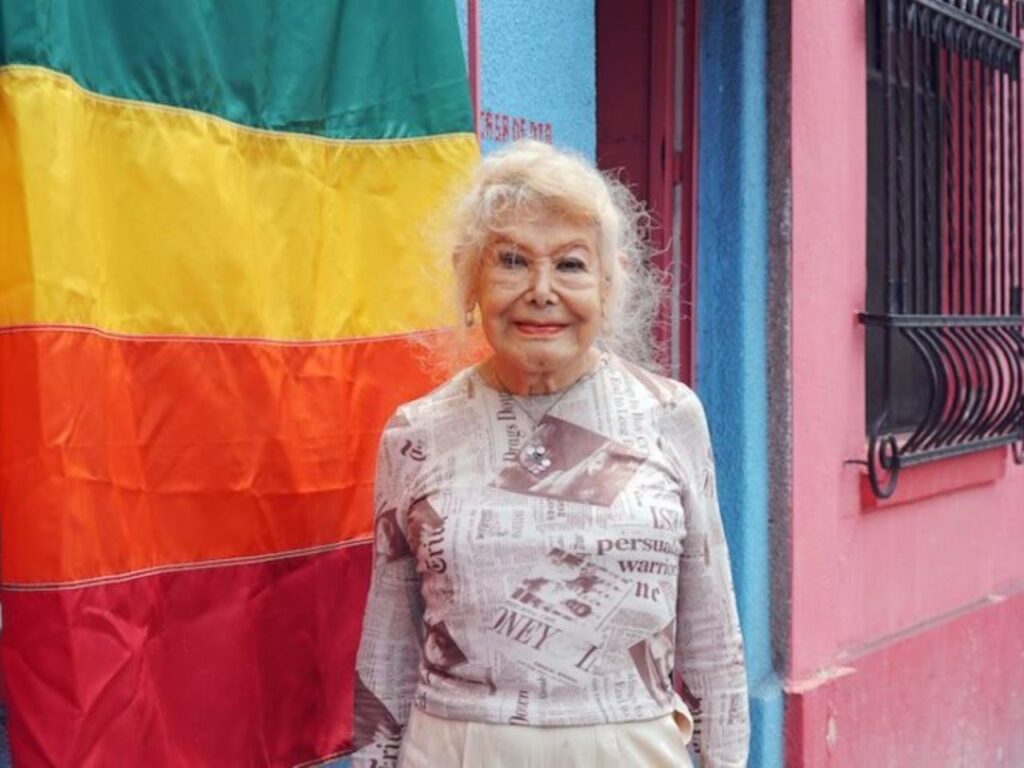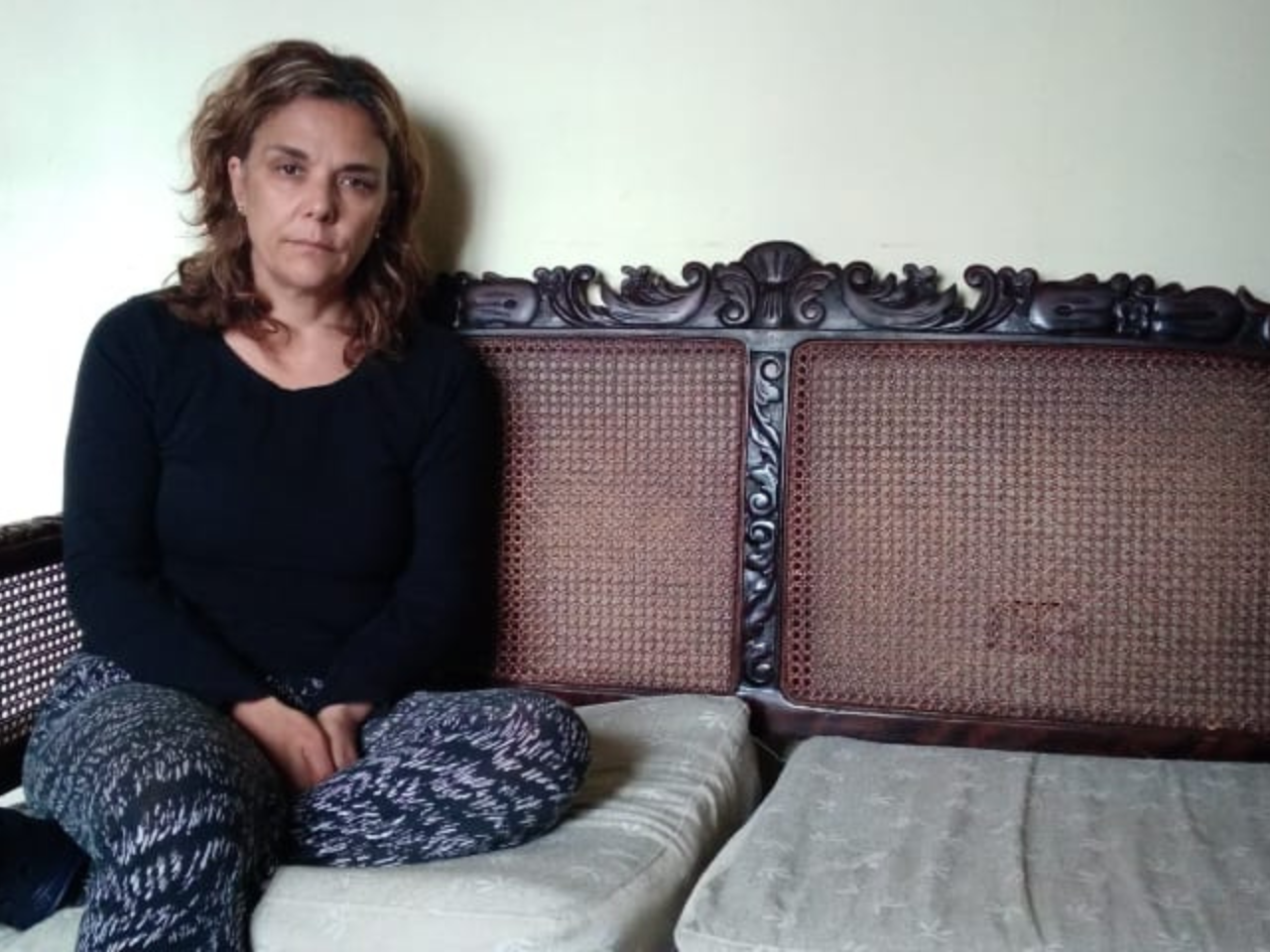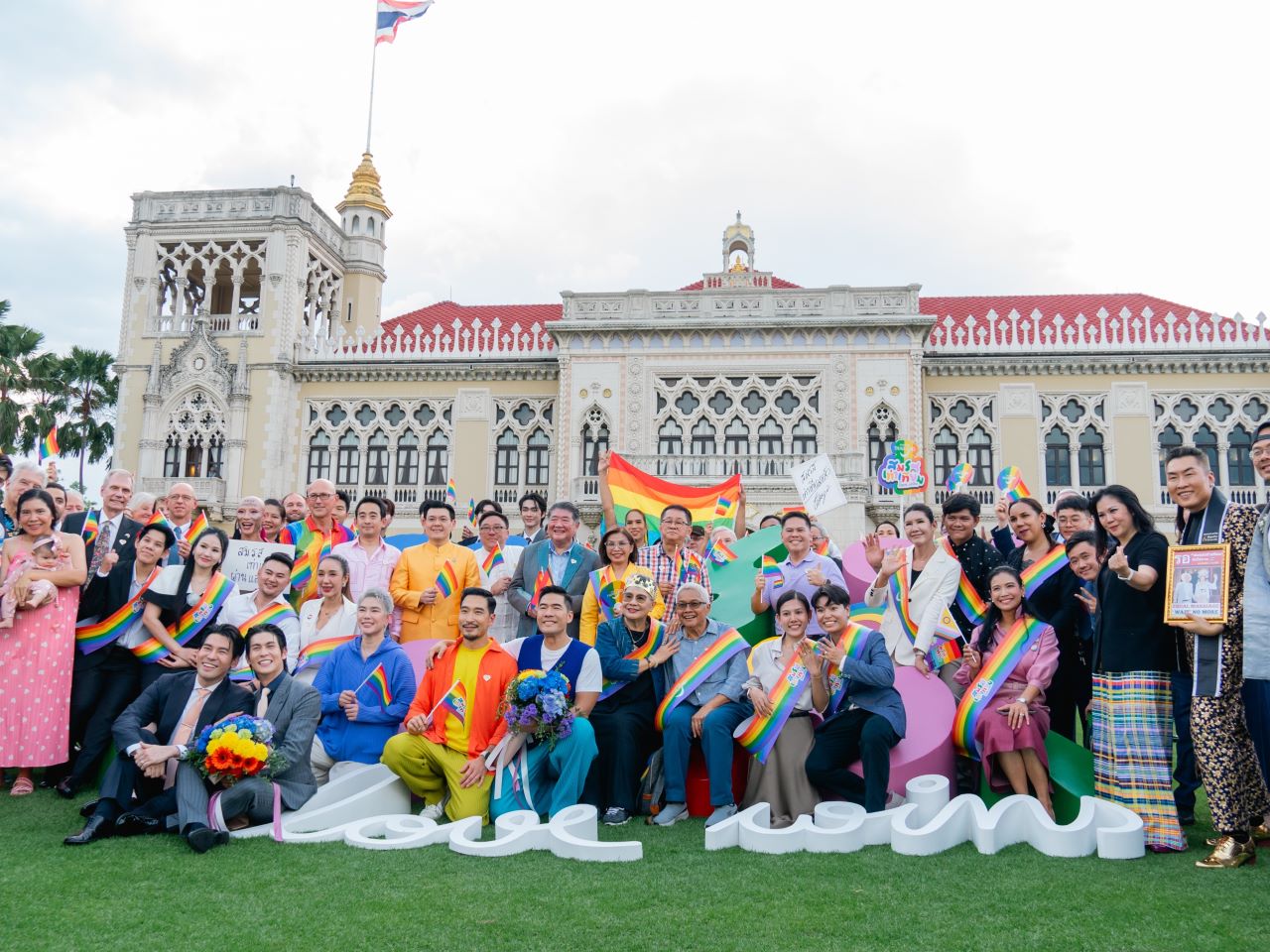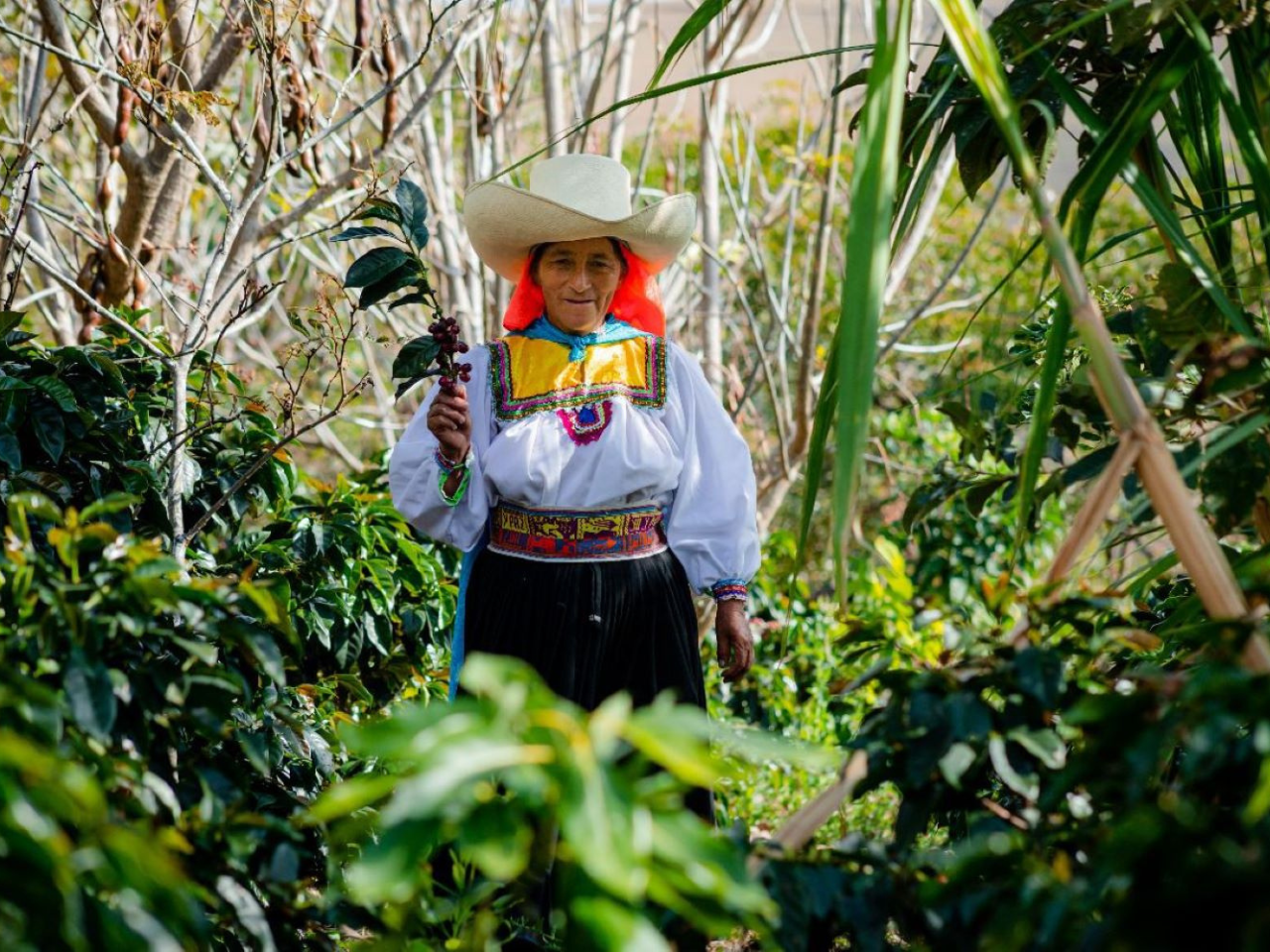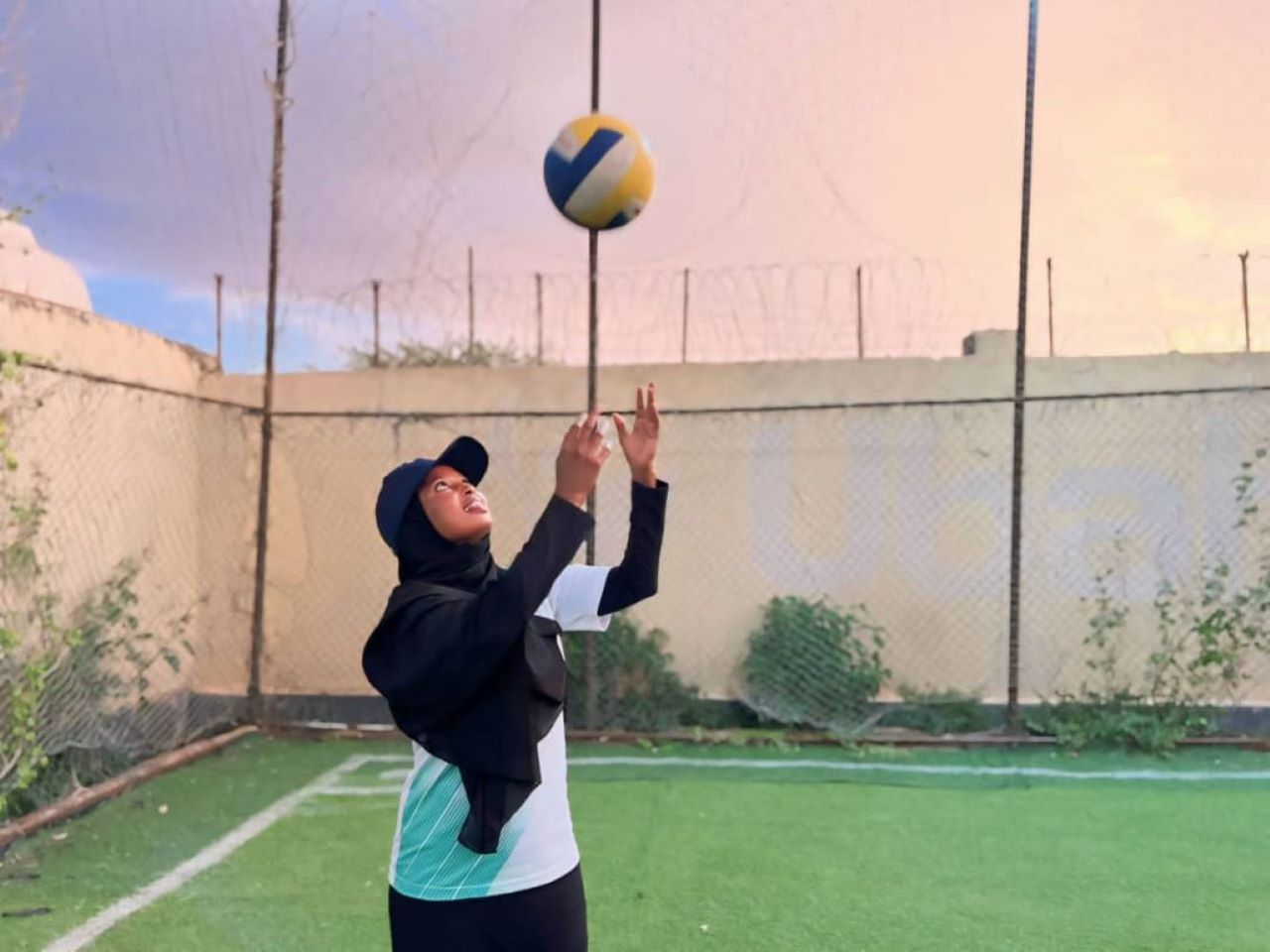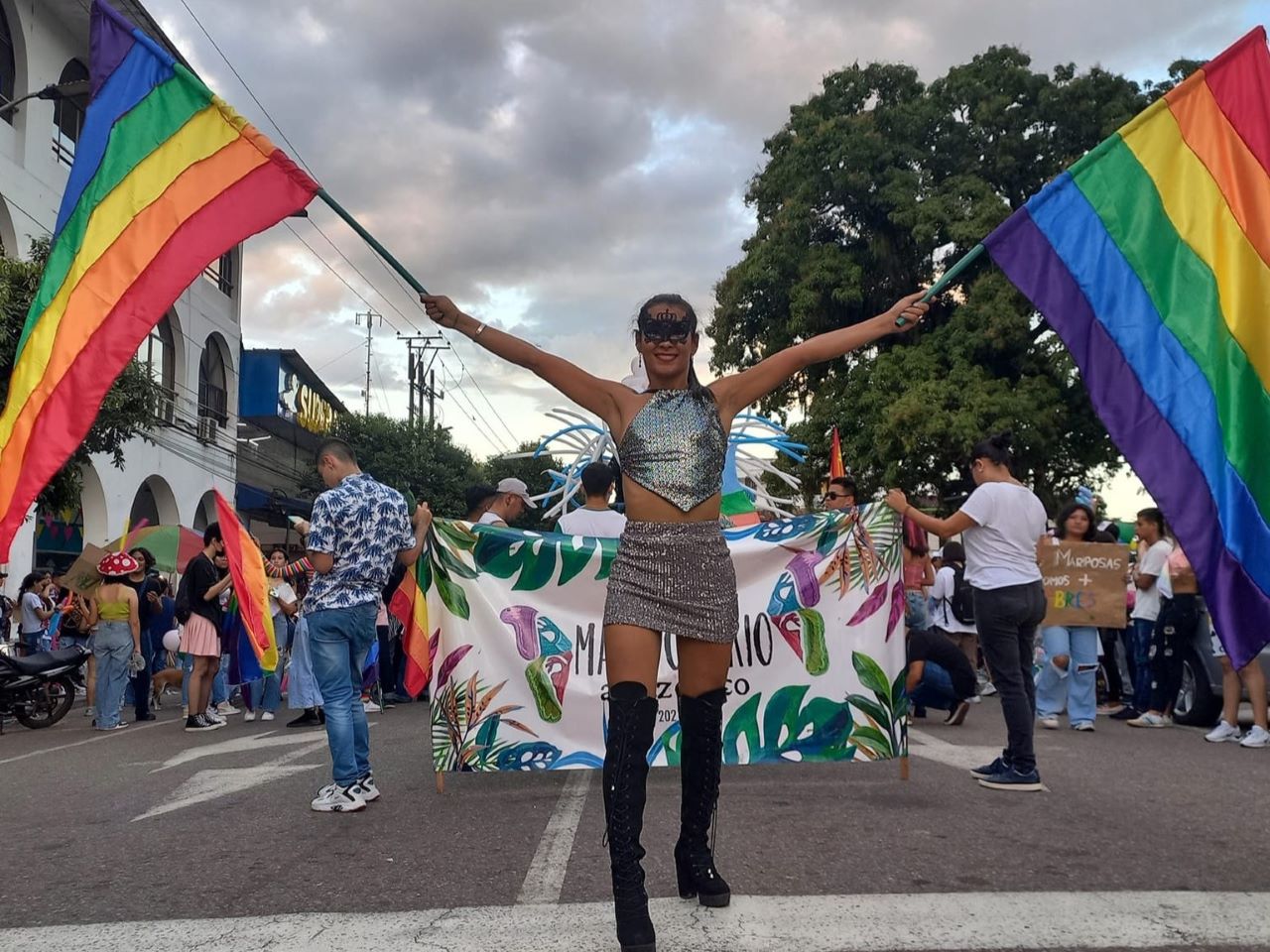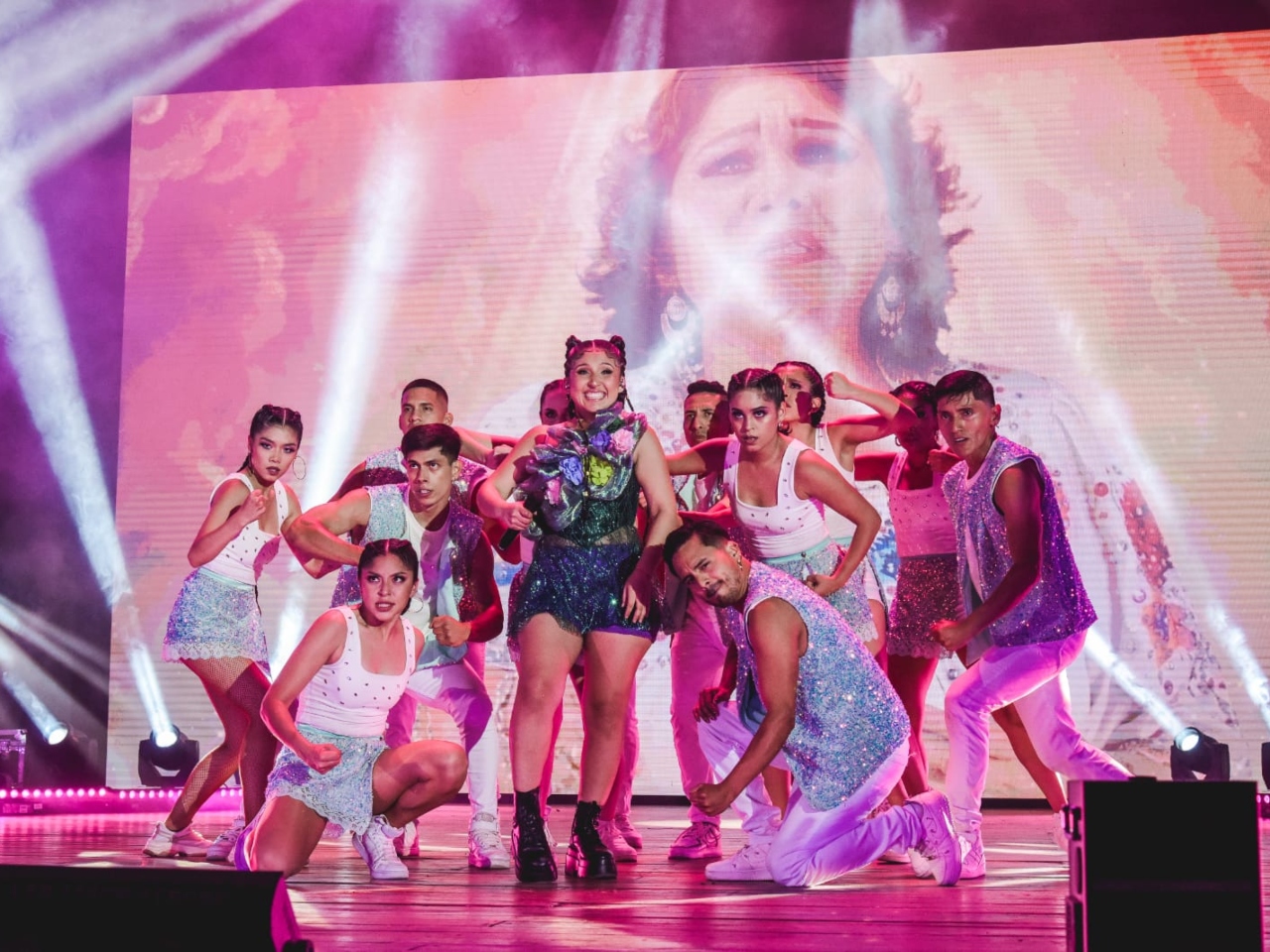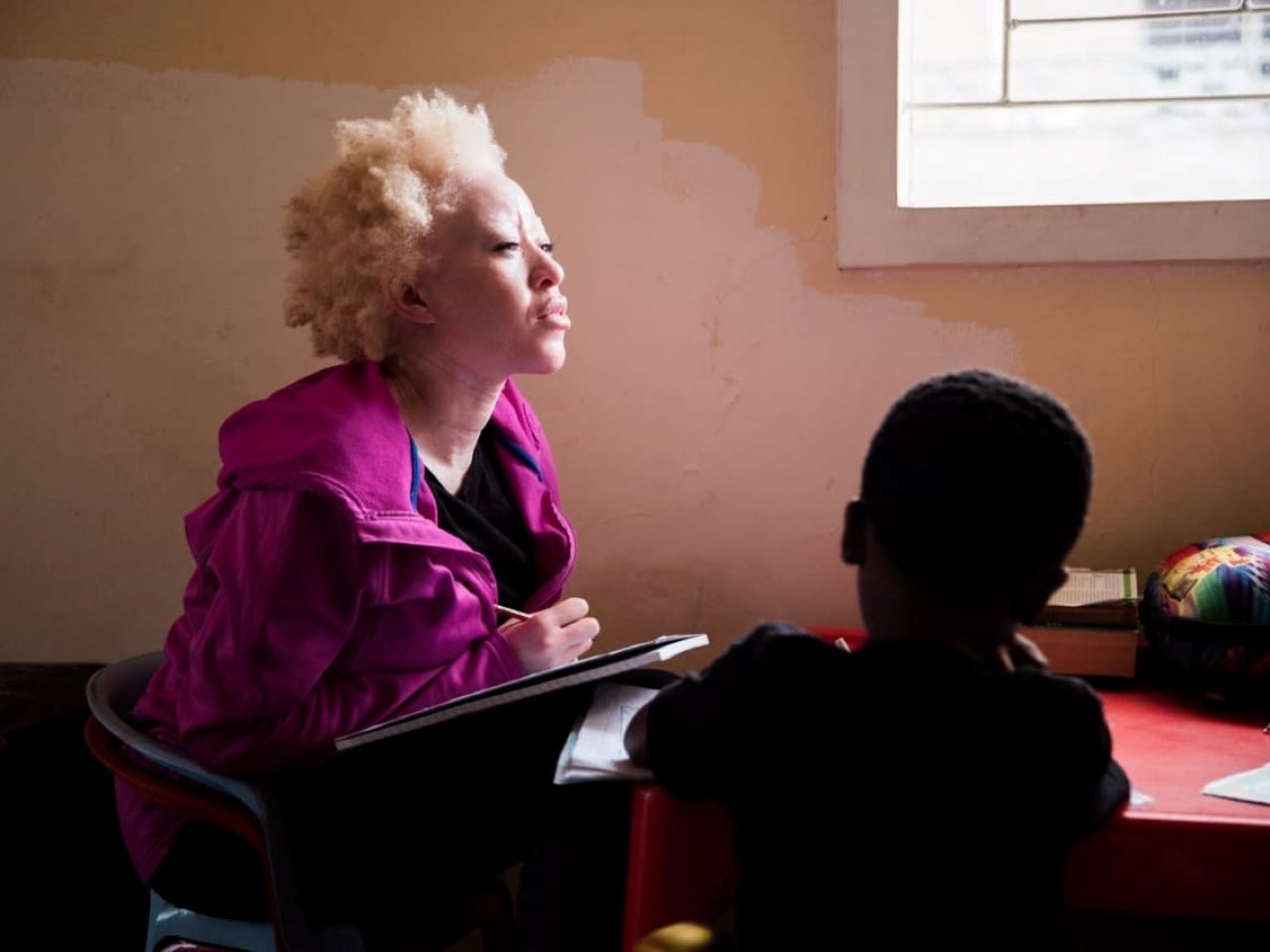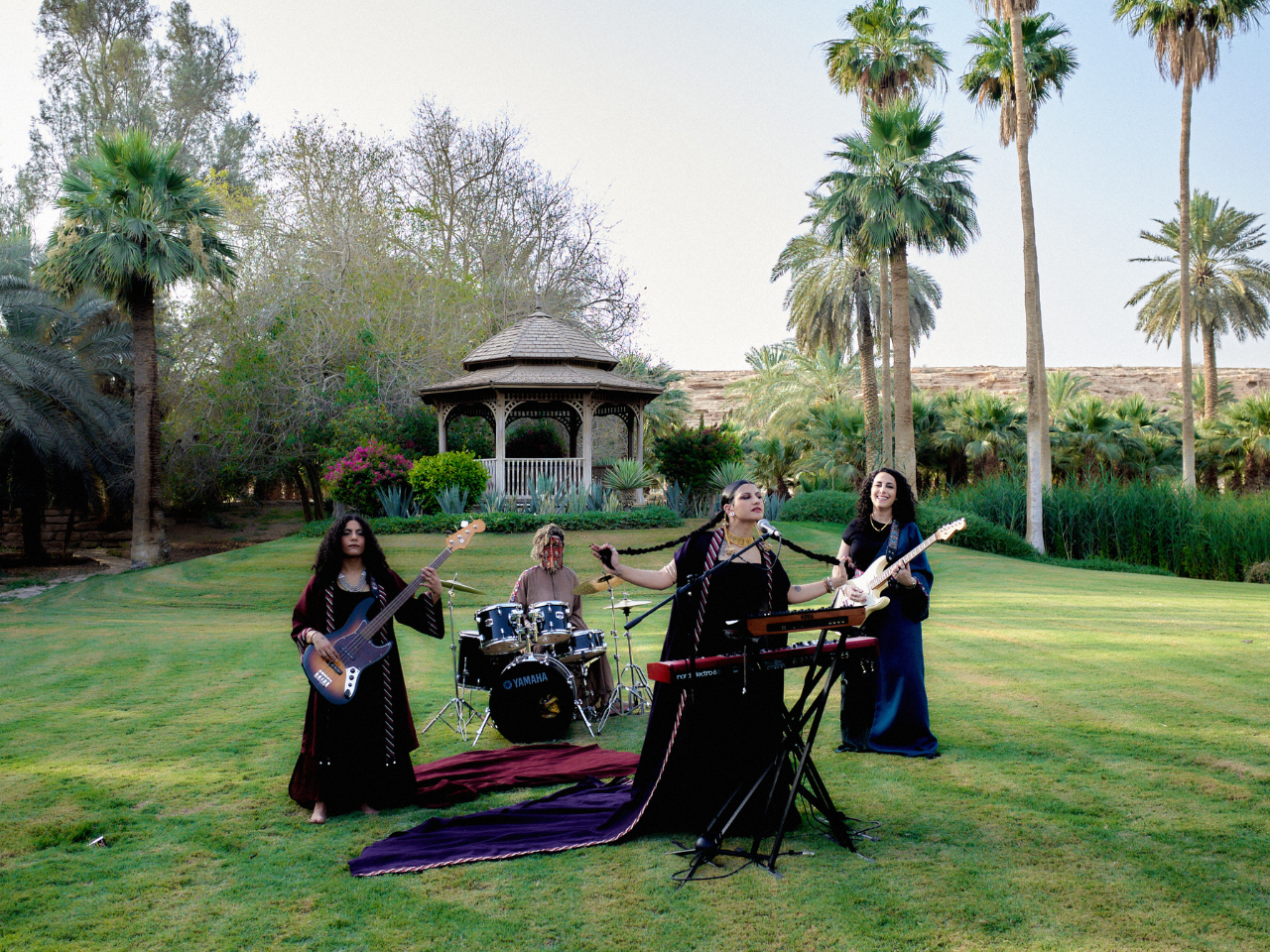Caring for senior members of the LGBTQ+ community: the harrowing journey of 92-year-old trans activist Samantha Flores
One day, an older man arrived at our door. Having never found his place in the world, he was suicidal. After settling in, he walked into the bathroom carrying his suitcase. A few minutes later, he emerged wearing women’s clothes.
- 2 years ago
January 29, 2024
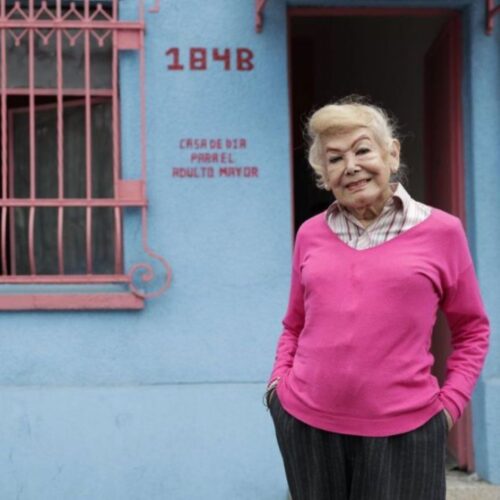
MEXICO CITY, Mexico ꟷ A few years ago, a friend suggested I create a shelter for LGBTQ+ seniors. As an older trans woman in Mexico, I understood the vulnerability, isolation, and loneliness of seniors in the community. The idea of helping them sent an energy through my body that felt vital and luminous. I held a beautiful dream in my hands.
It took several years to work through the Mexican bureaucracy and find the right place for the project, but in 2018, after collecting so many signatures, I inaugurated the Vida Alegre day home and Laetus Vitae, the first meeting space in my country for older adults of sexual diversity.
The community quickly grew to 40 and people arrived with heart wrenching stories. Some came with only the clothes on their back or a tiny suitcase. Some looked as if they stood on the brink of starvation, their bones sticking out and visible through their clothes. They barely had the strength to hold food to their mouths, so we helped to feed them. Others came dirty, with grown bodies covered in bruises. So, we rolled up our sleeves and bathed them, gave them haircuts, painted their nails, and slowly brought them back to life. Together, we became a family.
Read more stories in the Sex & Gender category at Orato World Media.
My own journey as a trans woman in Mexico: the seeds of my activism
Born in Veracruz in 1932, the land around my home sparkled with oranges, guava, lemons, and avocados. In my idyllic childhood, I emanated an effeminate nature; I could not go unnoticed. Behind my back I heard murmurs from neighbors and classmates. They looked at me strangely and pointed, but the unconditional love I felt at home shielded me for a time. Yet, I was bursting at the seams to get out of Orizaba.
After high school I went to Mexico City and immersed myself in the capital’s budding gay scene. It felt like absolute freedom. One night in 1964, I went to a costume party in drag. As Samantha (named after Grace Kelly in the movie High Society), I walked in feeling glamorous. Moving down the stairs, I felt like I walked into a new chapter of my life. The host Xóchitl was a friend and the most famous trans women in Mexico. She had connections with the rich and powerful and hosted extravagant parties. She opened the door for trans women like me.
Little by little, I appeared in public as Samantha until, eventually, I simply was. I wore elegant dresses, always accompanied by handsome boys. Yet, being part of the LGBTQ+ community in Mexico remained dangerous. Police regularly stopped trans women and raided gay bars. Sometimes, officers took them to dark places to rape or beat them. I zigzagged my way through life, avoiding problems but fear consumed me and for a nearly a decade, I moved back and forth between Mexico and Los Angeles. Then, the AIDS epidemic hit with fury, and I began saying goodbye to friends. If I say I knew 300 people who perished, I’m not exaggerating. These experiences devastated me, but the seeds of my activism began to grow and I became a fighter.
The shelter became an oasis for LGBTQ+ seniors and people living in the streets
After years of volunteering in the LGBTQ+ community, activism became a big part of my life. Now I focus on seniors. Few trans people are lucky enough to live as long as I have, and I have something to offer. One day, an older man arrived at our door. Having never found his place in the world, he was suicidal. After settling in, he walked into the bathroom carrying his suitcase. A few minutes later, he emerged wearing women’s clothes. I looked at him in shock, taking in every detail. With tears in her eyes, she told me she in 70 years, she never lived free. There, inside the walls of our shelter, she came out as trans for the first time.
Not far from the shelter, we encountered a woman sitting on the sidewalk at the metro crossing. At least 800 or 1,000 people passed her daily. Wrapped in a shawl, she sold sweets to make money and had a child with her. One day, out of curiosity, the child approached the door of our shelter. I gave him some cookies and he came back the next day. With big tender eyes, in a timid voice, he asked, “Madam, at what age can we come here to live with you?” I smiled and asked, “How old are you?” With a beautiful, toothy grin he answered, “Four years!”
“Well, you can be as young as four years old here,” I told him. Soon, he came with his mother to live with us, leaving the streets behind. Though we continued to focus on LGBTQ+ people age 60 and older, our place helped many people in need.
Together at Vida Alegre seniors from the LGBTQ+ no longer feel invisible
During the COVID-19 Pandemic, things fell apart temporarily. The beautiful house with the pink outer walls and the rainbow flag proudly flying closed its doors. We worked to relocate residents to other centers and the homes of friends and acquaintances. Some died of COVID, and a sadness overtook me. In desperation, I battled an endless well of tears.
When the Pandemic ended, we reopened and began to improve the facilities, painting walls and installing new windows, but the municipality closed us down for not having the proper permits. Once again, we found ourselves struggling. I paid the fine in time but had to reopen elsewhere as a day center. I felt like I could not bear another blow. Yet, the patrons seemed happier than ever.
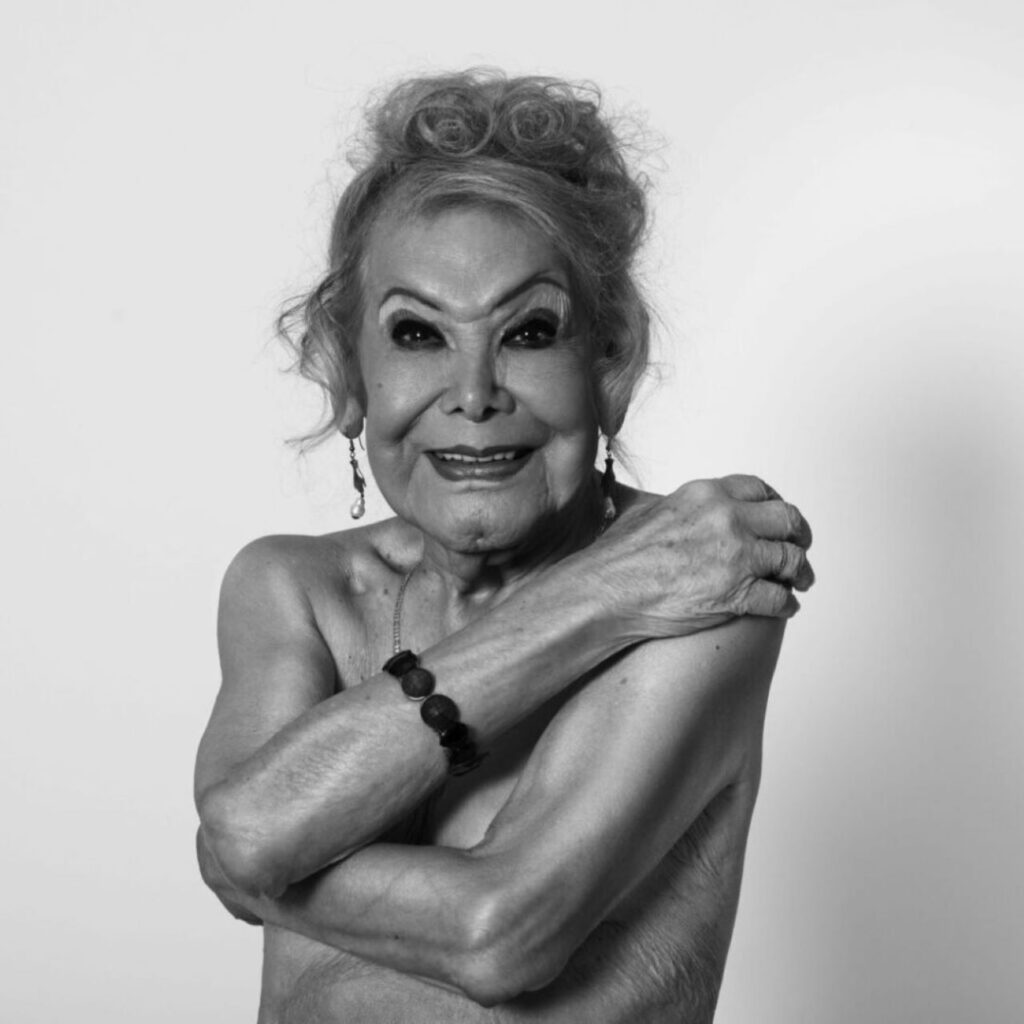
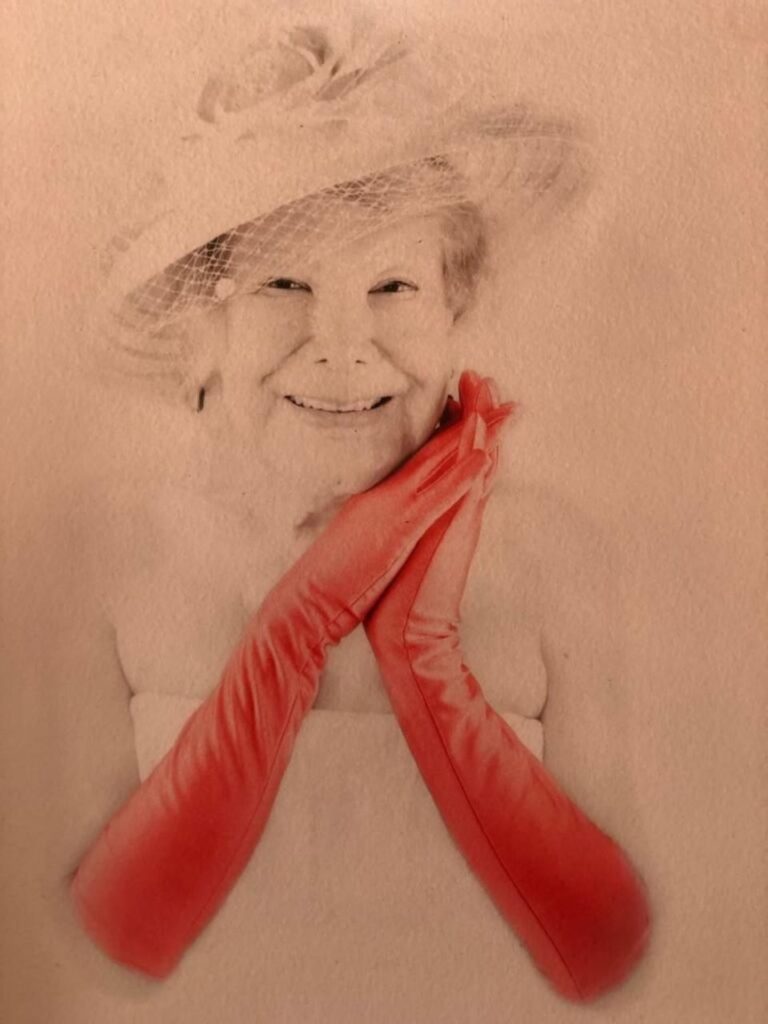
In a nomadic way, it felt like a rebirth. As association took over management of the house and running the workshops. We offer grief therapy, meals, a film club, technology training, and even a laugh workshop. Yet, most importantly, the lonely seniors from Mexico’s LGBTQ+ community who come to us have found a loving and caring community.
Those who experience abandonment and loneliness knows no bounds, so our clients include a mix of heterosexual and cisgendered people, as well as LGBTQ+ individuals. Vida Alegre became a safe, inclusive space for everyone. They no longer feel like a nuisance to their families nor face the kind of discrimination that hurled them into horrible scenarios. As we share hugs and warmth with each other, older gay and trans people who come to us are no longer invisible in a world that too often wants them to disappear.

